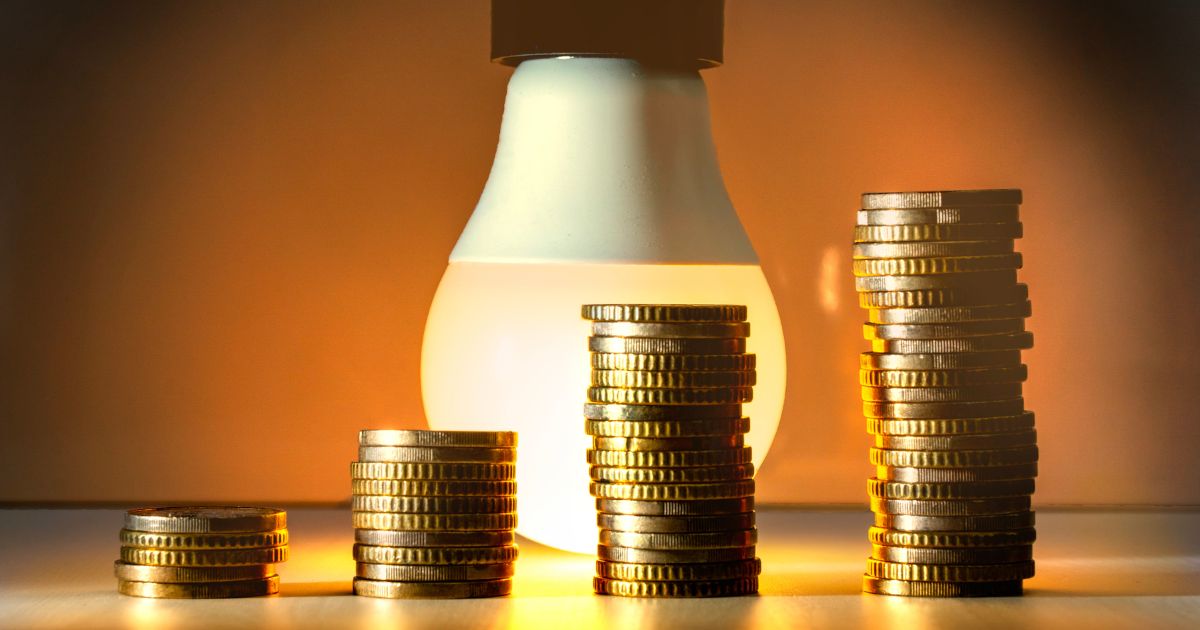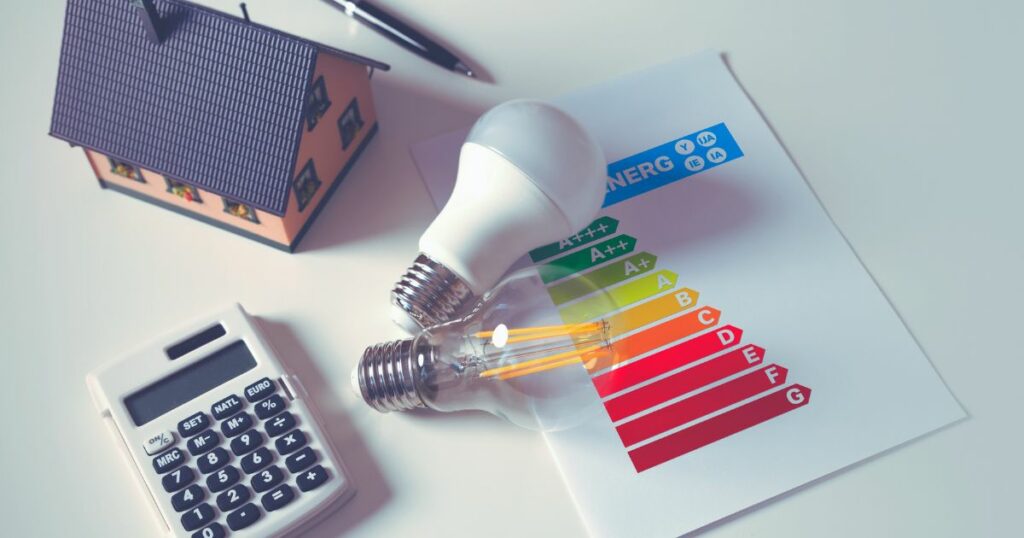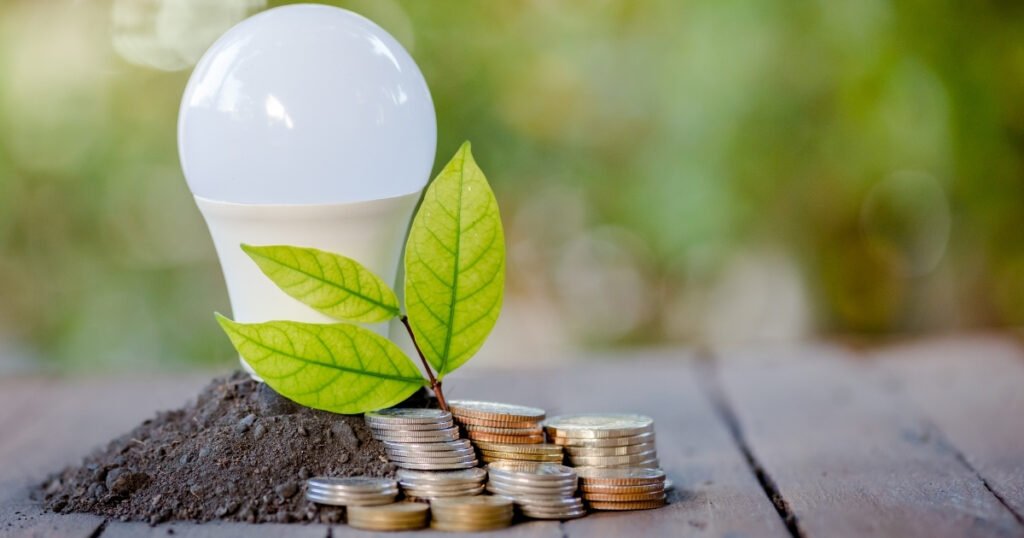
In South Africa, managing electricity consumption is vital not only for reducing household expenses but also for easing the strain on the national power supply. Particularly during colder seasons, electricity bills can easily skyrocket. With the country grappling with challenges in meeting the electricity demands of its population, it’s essential for everyone to contribute to conserving energy and reducing the load on the national grid.
Key Takeaways
- Energy Assessments are Crucial: Conducting an energy assessment is the first step in identifying areas for improvement in your home’s energy consumption. This enables targeted actions to enhance efficiency.
- Upgrades can Modernize and Save: Investing in modern, efficient technologies such as double-glazed windows and smart devices can significantly reduce energy usage, modernize your home, and lead to substantial savings on utility bills.
- Smart Landscaping enhances Efficiency: Thoughtful landscaping not only improves the aesthetic appeal of your home but also plays a significant role in enhancing its heating and cooling efficiency, contributing to a higher energy score.

Efficient Energy Usage at Home
Switch Off Lights When Exiting a Room
Cultivating the simple yet impactful practice of turning off lights upon leaving any room is essential. Establish a reminder system until it becomes an automatic behavior. This routine act can significantly reduce your monthly electricity bill.
Adopt LED Lighting
The trend toward stylish, cost-effective smart LED lighting is on the rise for good reason. LEDs outshine traditional halogen bulbs in efficiency, offering a blend of aesthetics and energy savings.
Disconnect Idle Devices
It’s crucial to disconnect gadgets when not in use. Avoid the standby mode; instead, unplug to conserve energy and contribute to environmental preservation.
Upgrade to Energy-Efficient Appliance Models
Major appliances such as washing machines consume more electricity compared to smaller gadgets like kettles and toasters. However, older versions of the same appliance tend to be even more power-hungry. Modern appliances are designed with energy efficiency and eco-friendliness in mind.
Tip: Consider a personal loan to finance the upgrade to energy-efficient appliances and save on your electricity bills.
Seek Out Energy Star-Certified Products
While it’s feasible to switch off many appliances when not in use, some, including refrigerators and remote-controlled gates, must remain operational. Certain models may consume as much energy as a 100W light bulb constantly left on. Hence, the importance of seeking Energy Star certification becomes clear. This designation signifies that an appliance’s energy consumption in standby mode falls below a specific threshold. Traditional household appliances can use up to 40% more electricity than those bearing the Energy Star label. Upgrading to newer, more efficient models is advisable if your home still uses older appliances.
| Appliance | Avg Power Usage Non-starred (kWh/month) | Avg Energy Use Energy-starred (kWh/month) | Tips for Efficient Use |
|---|---|---|---|
| Refrigerator | 100 | 70 | Keep the coils clean and ensure enough space for air circulation. |
| Air Conditioner | 150 | 100 | Service yearly, use at moderate temperatures, and install in a shaded area. |
| Washing Machine | 80 | 55 | Use cold water settings and full loads for each wash. |
| Dishwasher | 30 | 20 | Avoid pre-rinsing, run with full loads, and use energy-saving cycles. |
| Electric Oven | 90 | 60 | Preheat sparingly, cook multiple items at once, and keep the door closed. |
This comparison highlights the potential energy savings of choosing energy-starred appliances and implementing efficient usage practices.
Saving on electricity can add extra cash to your pocket, but what if you could go further? Learn how to get money for free in South Africa and combine these savings strategies to maximise your disposable income and achieve your financial goals faster.
Install a Timer for Your Electric Water Heater
Electric water heaters are notoriously energy-intensive, significantly inflating your electricity bill if left running round-the-clock. Hot water is typically only needed at specific times, eliminating the necessity for continuous operation. Activating the heater a few hours before use is a more energy-conscious approach. While manual operation is an option, an electronic timer offers convenience and efficiency. Available from retailers such as Makro and Game, these devices range in price from R150 to R300. They can be set to daily or weekly schedules, ensuring your water heater activates only as needed.
Cook with the Lid On
Utilizing a simple yet effective trick like cooking with the lid on can drastically reduce energy usage in daily life. By doing so, you ensure that both cooking time and water consumption are significantly lowered.
Switch to a Gas Stove
Electric ovens are known for their high electricity consumption. Luckily, the eco-friendly option—gas stoves—not only prove to be more energy-efficient but also offer greater convenience. While the initial installation of gas ovens might seem costly, gas usage is generally less expensive and provides immediate heat, unlike electric stoves that require some time to warm up. If the upfront cost appears steep, consider opting for a gas cylinder equipped with a cooker top attachment as an alternative to traditional stove plates.
If you’re considering upgrading your home’s system, learn about the best ways to borrow money for home improvements.
Utilize Smart Meters
Implementing a smart meter in your home is an excellent strategy for monitoring your energy consumption. It allows you to track your usage in real-time, identifying opportunities to cut back.
Wash Clothes at Lower Temperatures
Opting to wash your clothes at a cooler temperature and only when you have a full load can lead to considerable savings in both water and electricity.
Adopt Solar-Powered Devices
In today’s market, almost any household electronic device has a solar-powered alternative. Gradually incorporating more solar-powered gadgets into your home can not only reduce energy costs but also cut down on maintenance and replacement expenses for these devices.
Illuminate your home with the sun’s power! Solar energy not only slashes bills but also shines a light on a greener future. Dreaming of a solar-powered home? Loans up to R250,000 with low interest can make it happen.
About Arcadia Finance
Simplify the process of obtaining a loan with Arcadia Finance. Apply at no cost and explore offers from up to 19 distinct lenders. All our affiliates adhere to the regulations established by the National Credit Regulator, ensuring their credibility.

Enhancing Your Home’s Energy Efficiency
Living in an energy-efficient home offers individuals several advantages, including reduced heating and electricity costs, enhanced comfort and safety during power outages, increased property resale value, and health benefits. These homes not only benefit their occupants but also contribute positively to the environment. From an energy system perspective, energy-efficient houses reduce demand on the grid during shortages and can even supply electricity back to the grid when needed, aiding in overall energy sustainability.
Saving electricity starts with smart investments. Learn about Solar Panel Prices to find out how going solar can reduce your monthly energy consumption and expenses.
Reduce Grid Energy Consumption
Start by conducting an energy assessment of your home to identify potential savings and improve your energy rating. There are numerous strategies to reduce grid dependency and enhance energy efficiency.
Implement Energy-Smart Landscaping
Thoughtful landscaping can enhance your home’s heating and cooling efficiency, thereby improving your energy rating. It beautifies your property and adds aesthetic value.
Invest in Smart Devices
Modern homebuyers are increasingly attracted to smart homes for the convenience and reduced environmental impact they offer. Smart devices automatically adjust power usage and switch off when not needed, ensuring efficiency. Incorporating these technologies not only responds to growing demand but also enhances your property’s value.
Conclusion
Saving electricity is not only a step towards reducing our environmental footprint but also an effective way to cut down on utility bills, thereby promoting financial savings. Implementing simple yet impactful measures such as turning off unused lights, using LED bulbs, and unplugging idle devices can significantly cut energy use and lower bills. Upgrading to energy-efficient appliances and using Energy Star products, alongside employing timers, cooking efficiently, and opting for solar devices, individuals can make significant strides towards conserving electricity. By taking these steps, we not only contribute to the sustainability of our planet but also enhance our quality of life through a more conscientious approach to resource consumption. It is our collective responsibility to act now and make energy conservation a priority in our daily lives, ensuring a greener and more sustainable future for generations to come.
Frequently Asked Questions
Saving electricity at home can be achieved through several effective methods, including the use of energy-efficient appliances, which consume less power for the same performance; insulating your home to reduce heating and cooling needs; switching to LED lighting, which uses at least 75% less energy than incandescent bulbs; and unplugging devices when they are not in use to avoid phantom power consumption.
Yes, smart home technologies can play a significant role in reducing electricity consumption. Devices such as smart thermostats, smart lights, and energy monitors allow you to control your home’s energy usage more efficiently, often resulting in substantial savings by automating energy-saving actions and providing insights into your consumption patterns.
Replacing old appliances with energy-efficient models can be a worthwhile investment over time. Although the initial cost may be higher, energy-efficient appliances use less electricity, which can lead to considerable savings on your energy bills. Additionally, many governments offer rebates and incentives for purchasing energy-efficient products, making the switch more affordable.
Reducing electricity consumption lowers the demand for power generation, which often relies on burning fossil fuels. This decrease in demand leads to a reduction in greenhouse gas emissions and other pollutants, contributing to the fight against climate change and improving air quality. Conserving electricity also helps to conserve natural resources, ensuring their availability for future generations.
Proper insulation plays a critical role in saving electricity by maintaining a more consistent indoor temperature, reducing the need for heating in the winter and cooling in the summer. Well-insulated homes can significantly cut down on energy consumption, as the heating and cooling systems require less power to achieve and maintain the desired temperature, leading to lower electricity bills and a more comfortable living environment.
Fast, uncomplicated, and trustworthy loan comparisons
At Arcadia Finance, you can compare loan offers from multiple lenders with no obligation and free of charge. Get a clear overview of your options and choose the best deal for you.
Fill out our form today to easily compare interest rates from 19 banks and find the right loan for you.


